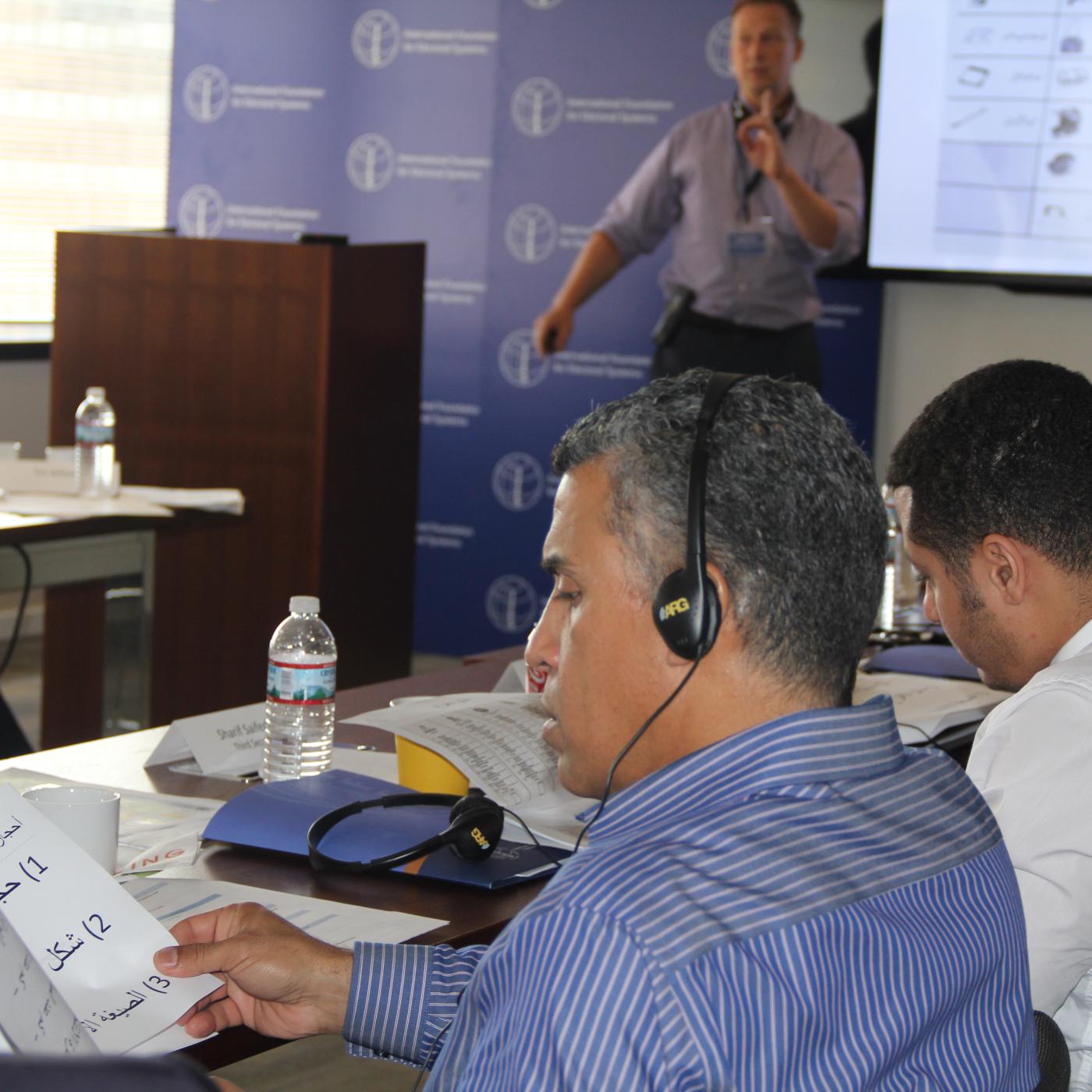Search
Filter by
Type
Publication date
Language
Type
Publication date
Language
Election FAQ
Elections in the Kyrgyz Republic: 2016 National Referendum and Local Elections
On December 11, Kyrgyz citizens will be voting in both local Kenesh (council) elections and on a national referendum. The local elections will be taking place as a result of President Almazbek Atambayev’s decree signed on October 10, which cited the fact that the terms of Kyrgyzstan’s local council deputies have expired. The national referendum will be held on the same day and aims to introduce amendments to the existing constitution.
News & Updates
Press Release
IFES Statement on the Passing of Libya Political Inclusion Activist Ahmed Alhrari Dakam
On November 1, the International Foundation for Electoral Systems (IFES) lost a member of its extended family. Ahmed Alhrari Dakam, a passionate political inclusion activist and a major advocate for the rights of persons with disabilities in Libya, passed away due to injuries sustained in a traffic accident.
News & Updates
Feature
Libyan and Tunisian Election Commissions Sign Memorandum of Understanding with IFES Support
On September 26, 2016, IFES, under the U.S. Agency for International Development-funded “Libya Elections Governance Support” project, held an event for the signing of a Memorandum of Understanding between the Libyan High National Elections Commission and the Tunisian Independent High Authority for Elections.
News & Updates
Feature
IFES Trains Libyan Diplomats on Electoral Processes
From August 24-26, 2016, IFES hosted the first ever governance workshop for members of Libya’s Washington D.C.-based diplomatic corps. The USAID-funded training provided the 17 members of the corps with tools and resources to bolster awareness among participants about the standards that are used globally to assess democratic governance and electoral processes.
News & Updates
Feature
Libyan Electoral Sign Language Lexicon Facilitates Deaf Empowerment
For Deaf Libyans, language barriers are a profound challenge to full participation in political life. In Libyan elections – as in many elections worldwide – speeches, voting materials and other essential electoral information are not translated into sign language. This creates an alarming gap in access to information for Libyan Deaf communities, and opens a subsequent possibility for manipulation by others.
Election FAQ
Elections in the Kyrgyz Republic: 2015 Parliamentary Elections
On October 4, citizens of the Kyrgyz Republic will elect representatives of political parties to become members of the unicameral 120-seat Parliament.
News & Updates
Feature
IFES Winter and Summer Democracy Camps Empower High-School Students in Kyrgyzstan
Since 2000, with the support of USAID, IFES has conducted over 20 Democracy Camps across Kyrgyzstan. Ninth- and tenth-grade participants learn democratic values, leadership skills, teamwork, their role as citizens, and how to advocate for change in their society. In 2009, over 2,600 students applied to take part in the camps. The goal of this project is to build civic mindedness and engagement among the young generation, and to instill in them a belief in their capacity as individuals to improve their country and communities. This is a necessary step in building a more democratic culture in Kyrgyzstan.
Election Material
Election and Political Party Law
Laws of Malawi - Local Government Supplement, 1970
Laws of Malawi - Local Government Supplement, 1970
News & Updates
Feature
Libyan Women Take the Lead in Building Peace and Democracy
Four years after the fall of Moammar Gadhafi’s regime, fractures in governance and society have given way to violence and civil unrest. Two competing governments have since emerged – each backed by militias that have turned Libyan neighborhoods into battlegrounds.
News & Updates
Feature
Democracy Camps in the Kyrgyz Republic benefit Students with Disabilities
The International Foundation for Electoral Systems (IFES) recently completed its annual Democracy Camp program in the Kyrgyz Republic, which brought together 120 secondary school students from across the country, including – for the first time – seven students with disabilities.





